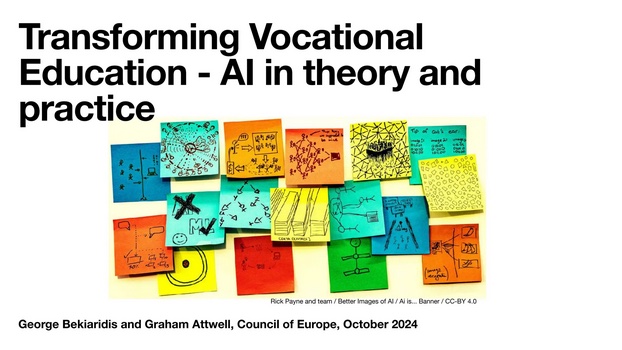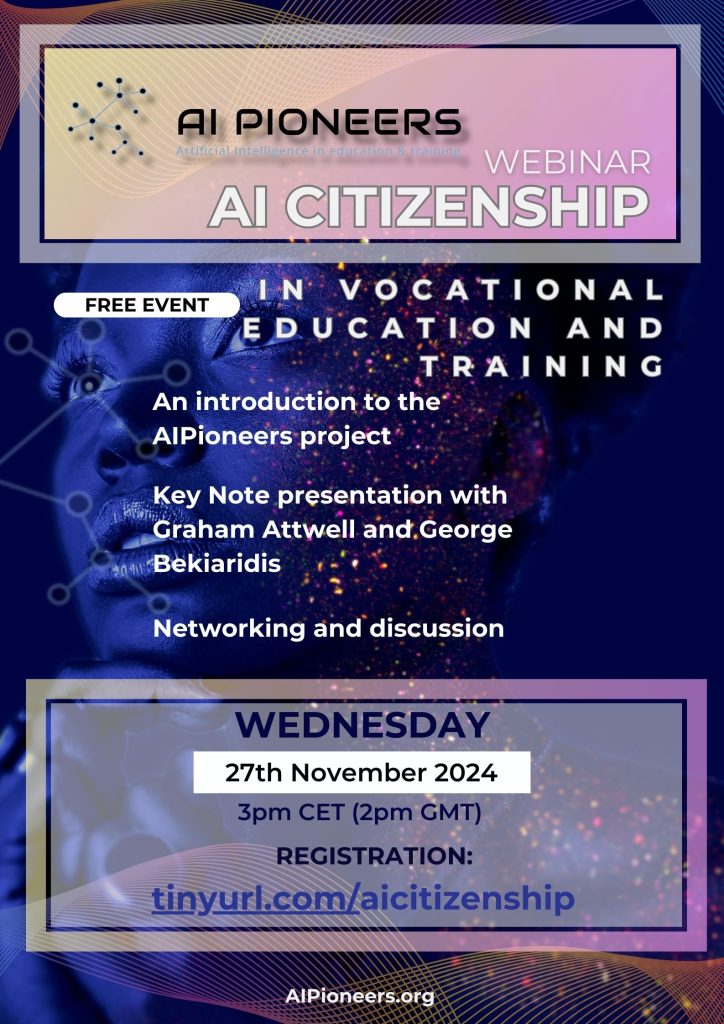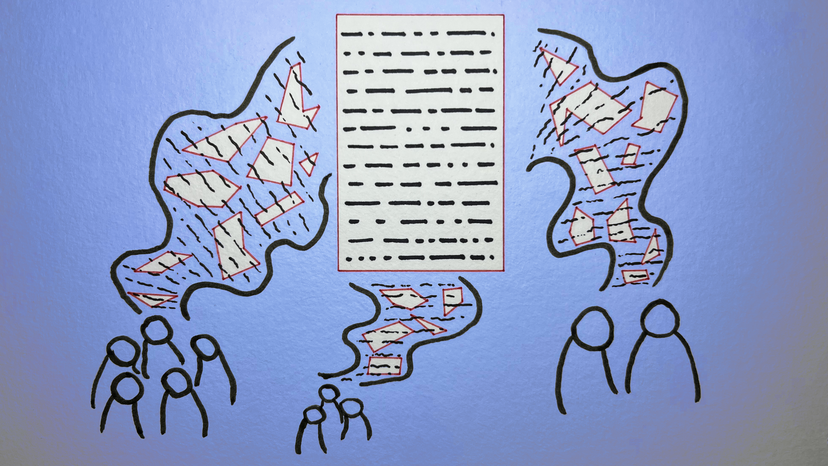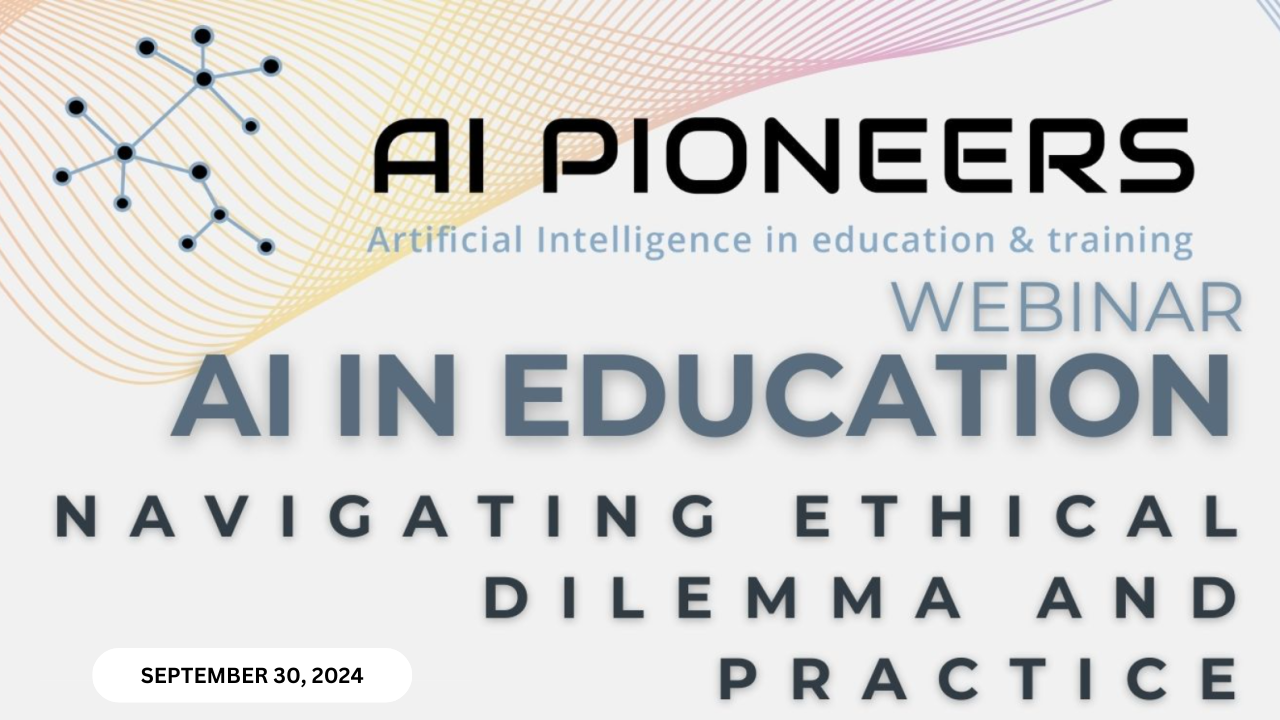Transforming Vocational Education – AI in Theory and Practice
George Bekiaridis and Graham Attwell have made a keynote presentation to the Second Conference on the Reference Framework of Competences for Democratic Culture and Vocational Education and Training to be held on 24 and 25 October 2024 at the Council of Europe in Strasbourg, France. The event was be dedicated to discussing the chapters of the new publication on the Council of Europe’s Reference Framework of Competences for Democratic Culture (RFCDC) and VET. In the presentation, Transforming Vocational Training – AI in theory and practice, they introduced ongoing research on using Activity Theory to analyse the impact of AI learning as a […]
AI Citizenship in VET
The next AI Pioneers Network webinar will be exploring the themes of democracy and citizenship around AI in vocational education and training. A couple of us have been working on a paper, the emergent themes are blogged about below… and this will un…
AI literacy and citizenship
In its broadest sense, literacy is the capacity to communicate with language, numbers and images and the use of those methods to understand and interact with the world. We have extended the concept of literacy to include domains such as digital literacy, financial literacy and media literacy. But what does this have to do with citizenship? As Robinson-Pant (2023) explains, ‘All too often, the term “literacy” is used in a metaphorical sense to mean “knowledge” or “learning” (as in the phrase “emotional literacy”), thus obscuring the ways in which reading, writing, constructing and decoding diverse texts may support – or […]
What are Learning Tools?
There’s an interesting post from Philippa Hardman in her newsletter today. Entitled Are ChatGPT, Claude & NotebookLM *Really* Disrupting Education? her research asks how much and how well do popular AI tools really support human learning and, in the process, disrupt education?She created a simple evaluation rubric to explore five key research questions: 1. Inclusion of Information 2. Exclusion of Information 3. [De]Emphasis of Information 4. Structure & Flow 5. Tone & Style Philippa Hardman used her own research articles as the input material, which she fed into what she says are considered to be the three big AI tools for learning: She prompted each tool in turn […]
AI and Motivation for Learning
Here’s the follow up I promised in my last post about earners’ and teachers’ Agency and Gen AI. Motivation plays a crucial role in the learning process. As opposed to behaviorist theories of learning, learners are increasingly seen as active participants in learning leading to a focus on how learners make sense of and choose to engage with their learning environments (National Academies of Sciences, Engineering, and Medicine. 2018). Cognitive theories, for example, have focused on how learners set goals for learning and achievement and how they maintain and monitor their progress toward those goals. While earlier research focused largely […]
Teachers’ and Learners’ Agency and Generative AI
It is true that there is plenty being written about AI in education – almost to the extent that it is the only thing being written about education. But as usual – few people are talking about Vocational Education and Training. And the discourse appears to almostdefault to a techno-determinist standpoint – whether by intention or not. Thus while reams are written on how to prompt Large Language Models little is being said about the pedagogy of AI. All technology applications favour and facilitate or hinder and block pedagogies whether hidden or not (Attwell G and Hughes J. 2010) . […]
Consultation Workshop “AI in Education: Navigating Ethical Dilemma and Practices”
On 30 September 2024, we hosted a 3rd Consultation […]
German Community of Practice – Save the Date
Der Workshop findet unter dem Titel „Konzeptentwicklung und Implementierungsstrategien […]
The Living Database Catalogs 700+ AI Risks to Boost Awareness
The AI Risk Repository, created by MIT’s FutureTech project, […]
Who owns your data?
Photo by Markus Spiske on Unsplash Arguments over what […]










